Some of you might know Pat Law as the founder of social media agency GOODSTUPH.
You might also know that her parents have been hawkers for more than four decades.
With the ongoing debate on the struggles of being a hawker in Singapore, Law shared her own family's experience on her Instagram stories on October 14, detailing the difficulties her parents face not only with the hawker centre's management, but also with local customers.
"Shameless locals"
To illustrate her experience, Law shared a story of how shameless Singaporeans can get with our hawkers.

There are locals (yes, plural) who try to get her father's soup and chilli for free, when they did not buy anything from the stall:

Even though her father would give in, Law's mother would "bite back".
A customer complained to the management about Law's mother after one such instance, and the latter was made to apologise.
The soup, by the way, was made with over 20 herbs that Law's father purchased on his only rest day of the week:

Now that her father is selling oyster omelettes, customers have tried to ask for as much as a 50 per cent discount:
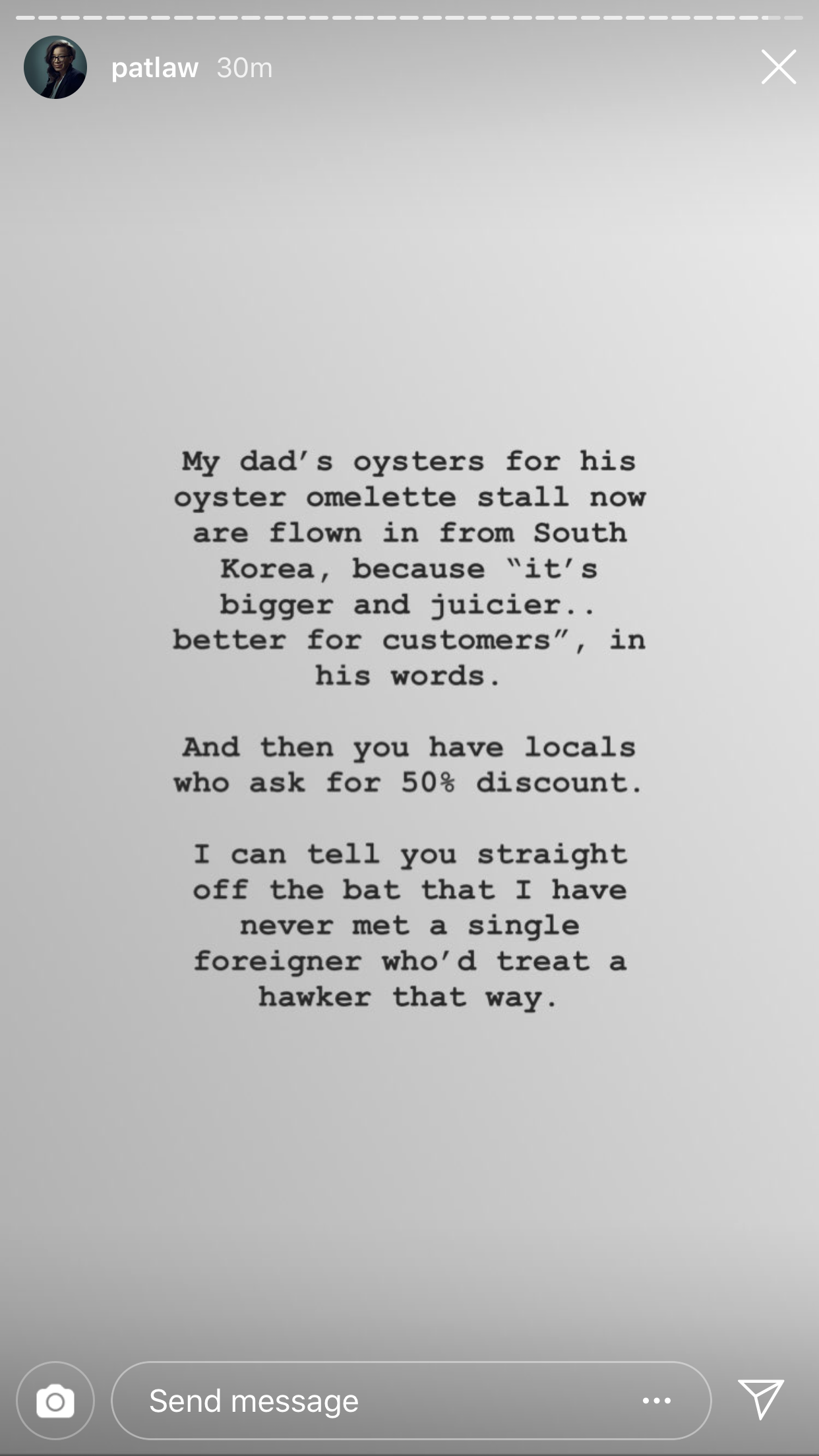
The day where Law's mother was made to apologise to the freeloader, she came home crying, asking Law to study harder so she wouldn't have to be a hawker.

This, however, is only the tip of the iceberg of everything that is wrong with our hawker culture, if Law’s Instagram stories are anything to go by.
Rent: From S$500 to S$6,000 in 20 years
Law began by sharing some newspaper reports on the issue:


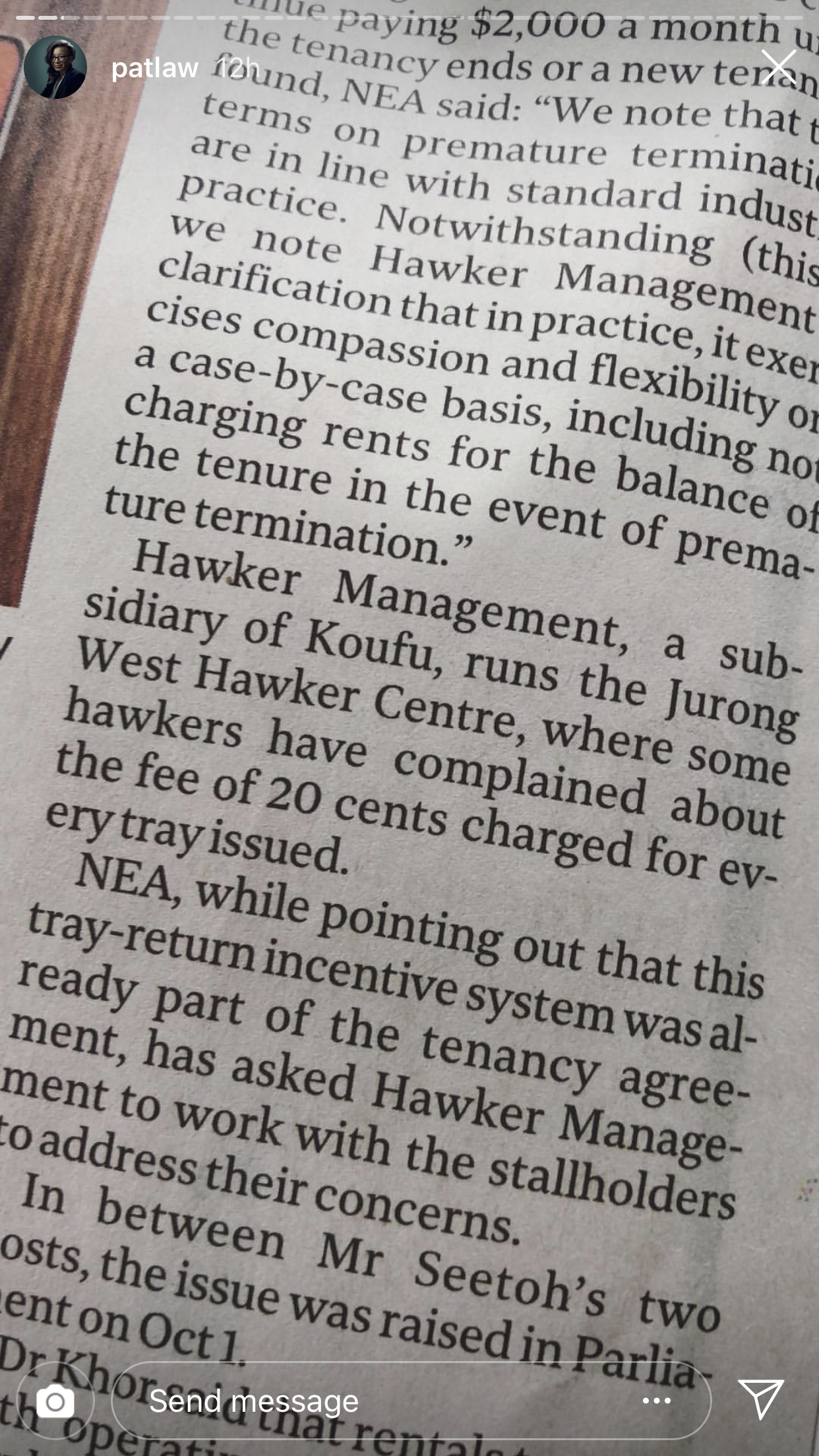
Before revealing the downsides to being a hawker in Singapore:
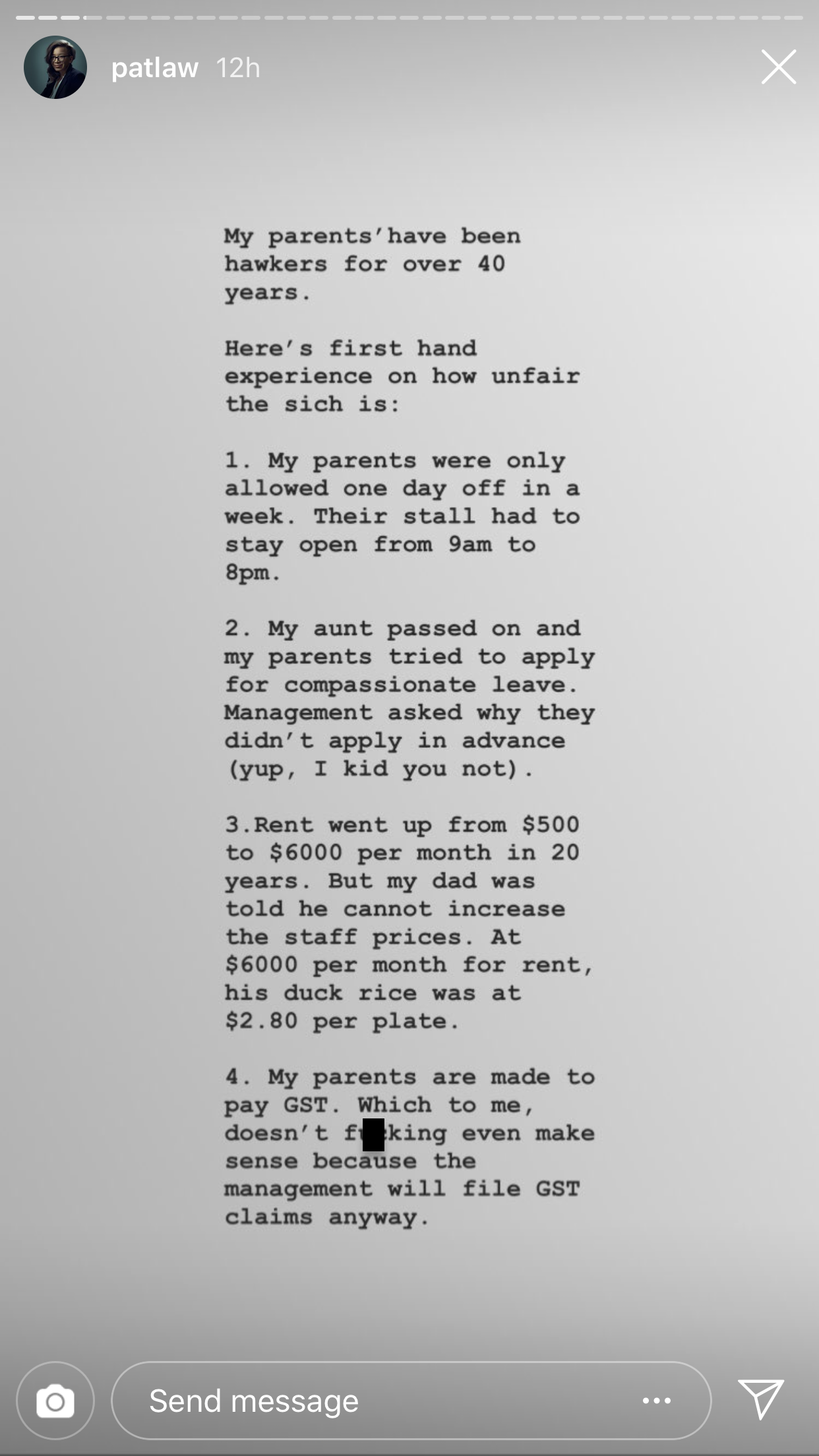
This includes only one off day a week, being asked to apply for compassionate leave in advance, and having rent increased exponentially but not being allowed to increase food prices for staff, and being made to pay GST.
Law did not elaborate at which point in her parents' 40-year hawker career did they experience these incidents.
Transparent charges?
Another photo of a newspaper report, where Law circled in red the claim that all charges for hawkers are transparent:
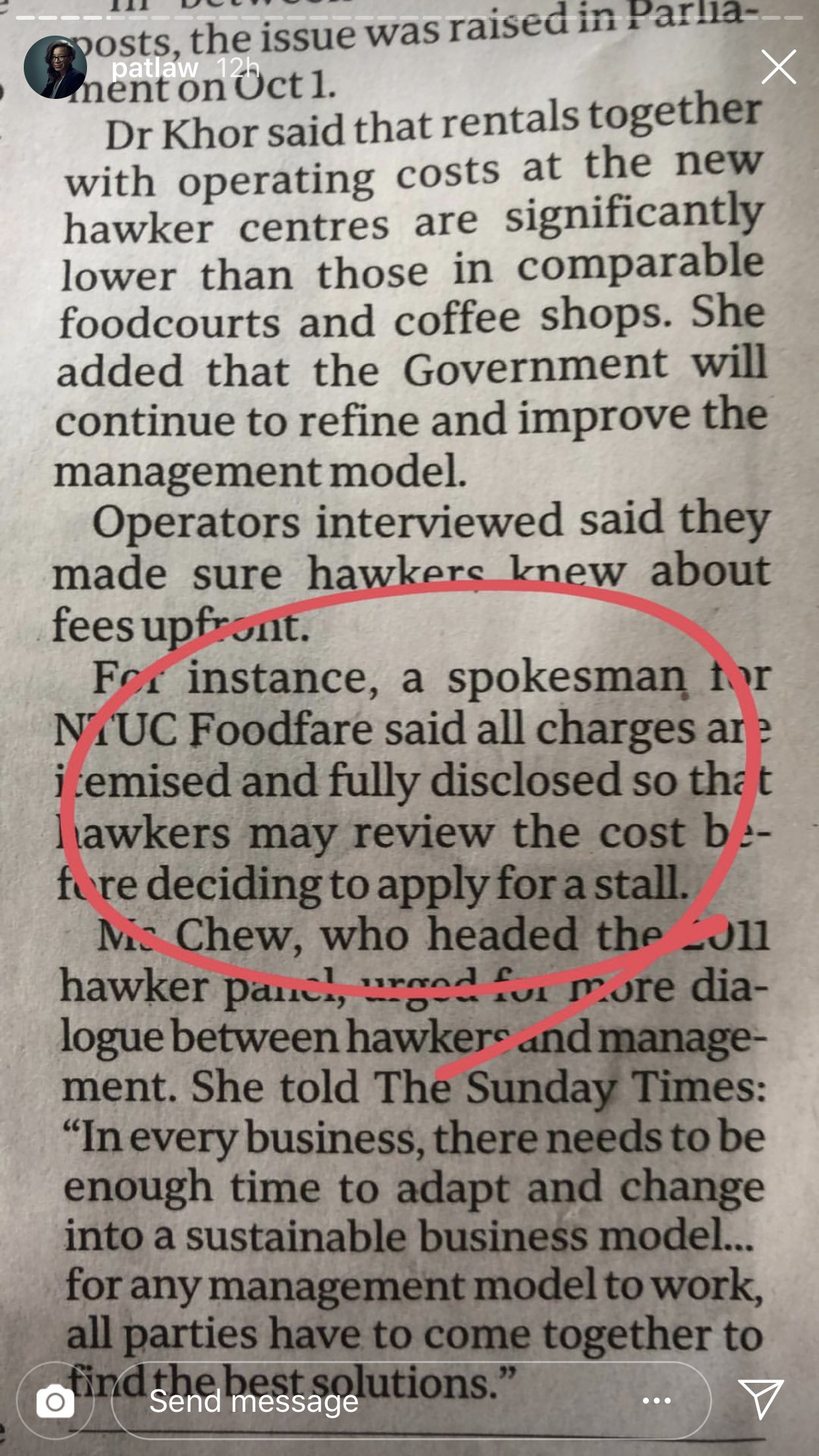
And why she is so angry, both with the management and her parents:

It is pertinent to note that Law does not say whether her parents are running their business in any of the hawker centres run by social enterprises as mentioned in the newspaper article she highlighted.
A hawker's mindset
One of the issues, Law writes, comes from the hawkers themselves.
This is because many hawkers possess the mindset that they should not be difficult with the management, or they will be evicted from their stall.

Law goes on to declare that she would not be sorry if her father's recipe -- passed down from her grandmother -- dies with him.
In fact, she would rather let it die than to be subjected to the social enterprises "bullying the shit out of [her]":

It's not easy to hire help, too:

Not solving the problem
And Law thinks that nothing useful has been done to solve the problems:
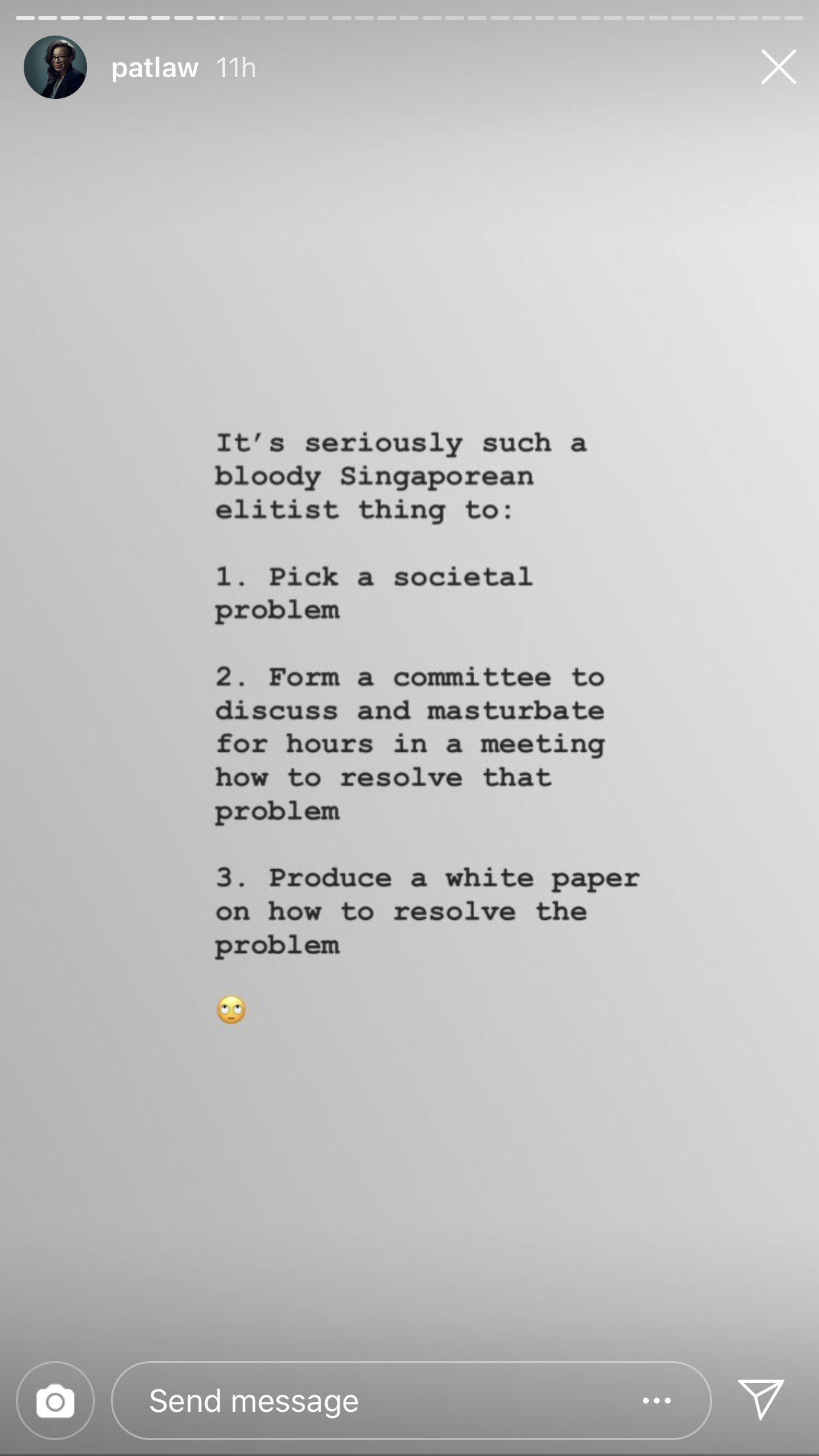
She then proposes some solutions to save our hawker culture:
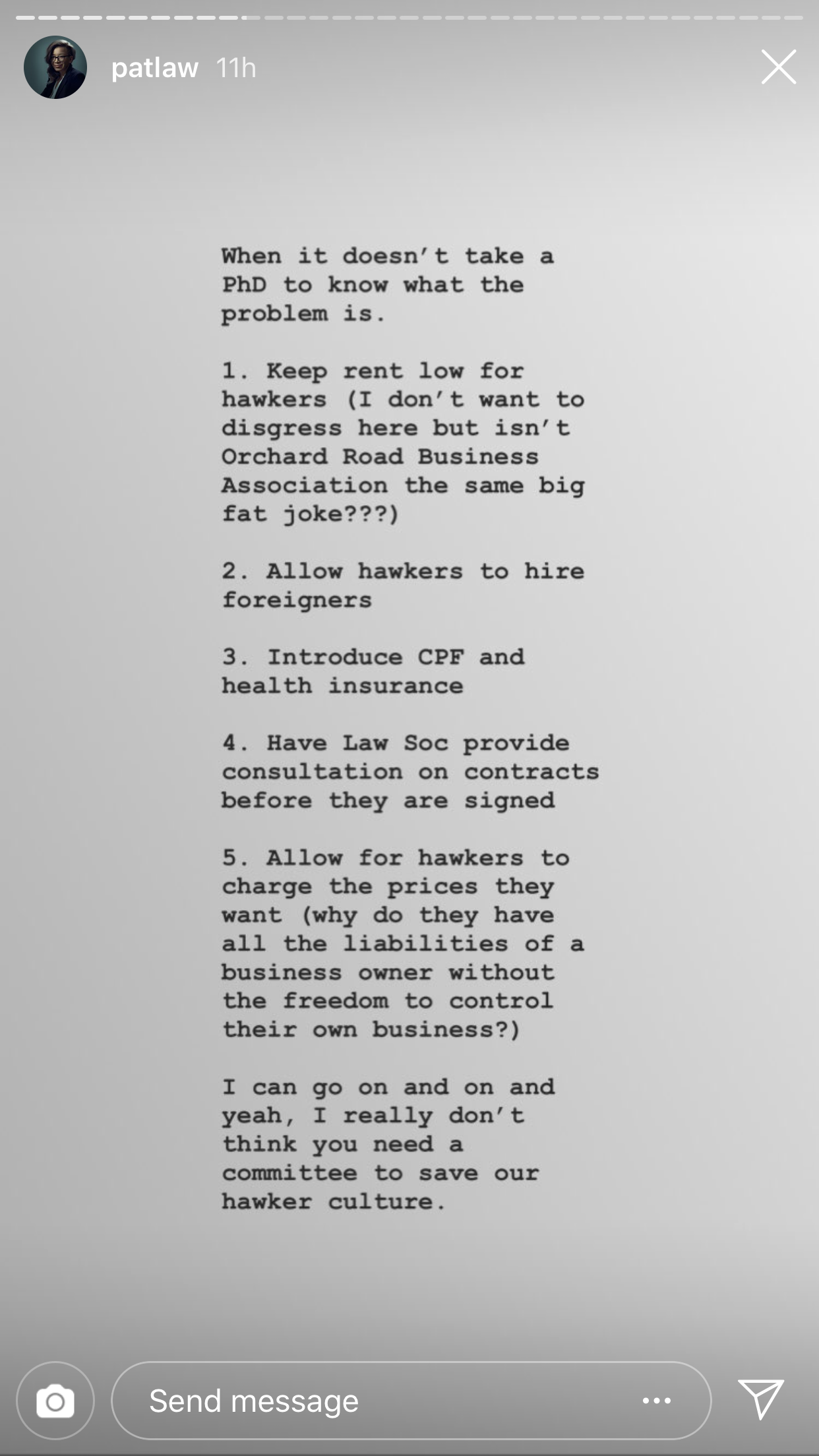
Local customers demanding for lower prices
And it's more than just management issues.
Local customers have also proven to be problematic, with their unreasonable demands for low prices and as above, even free food.
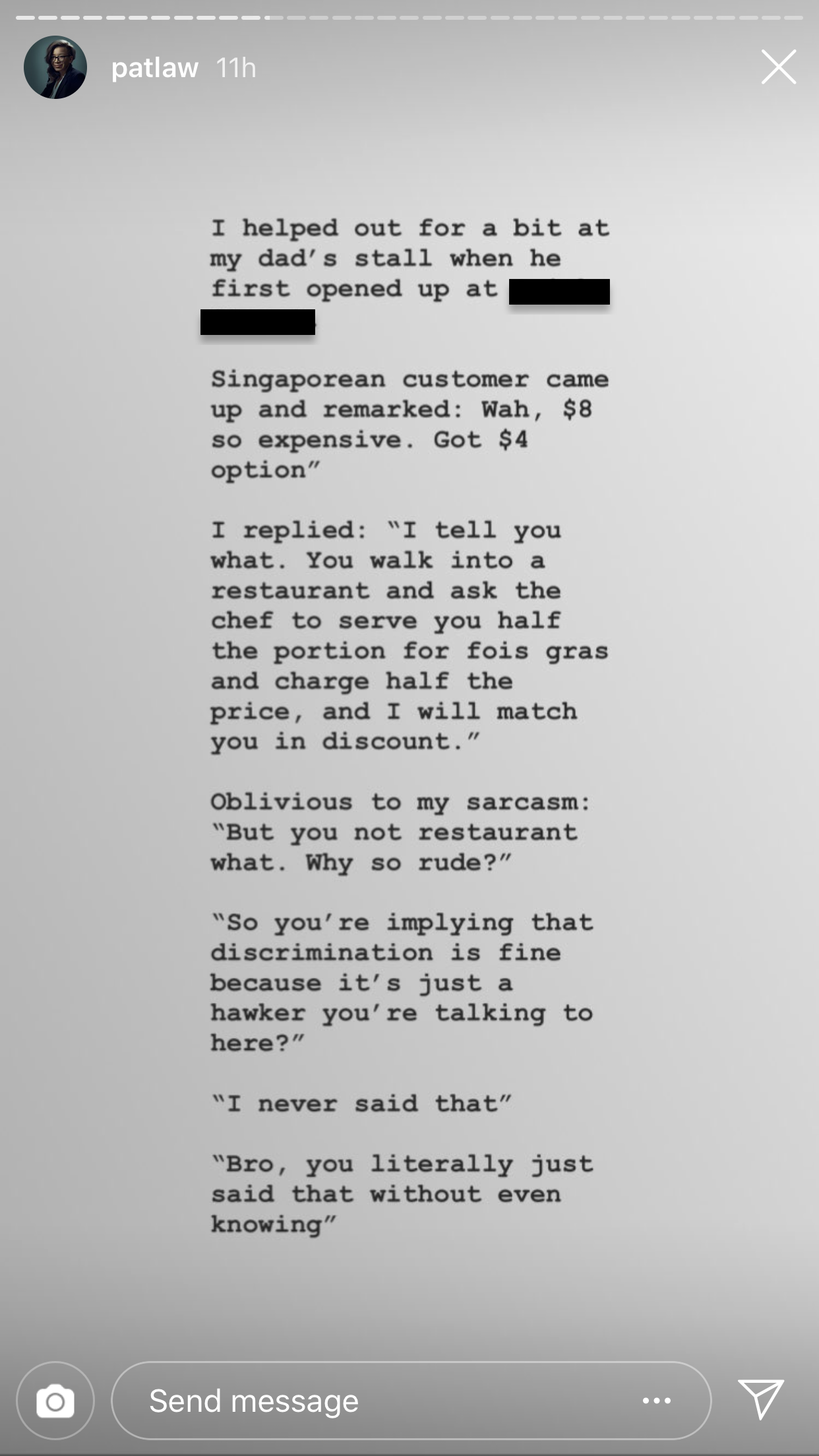

Another example of customers scrimping at a hawker's expense:

Hitting back for making hawkers pay for tray returns
Another topic that has been making waves in Singapore is the fact that Jurong West Hawker Centre's stallholders are made to pay 20 cents for every tray returned:

Law does not hold back her thoughts about those who came up with this initiative:



Social enterprise hawker centres vs traditional hawkers
It is worth noting that the media has recently cast a spotlight on social enterprise hawker centres -- a project run by private organisations that aims to provide affordable food for the masses, while keeping fees low for the hawkers.
The initiative was proposed by the Public Consultation Panel on Hawker Centres formed in 2011, where the Ministry of Environment and Water Resources (MEWR) then accepted most of the panel's recommendations.
To date, seven out of 114 hawker centres are managed by social enterprises including Fei Siong, NTUC Foodfare, Timbre, Koufu, and Kopitiam.
On the other hand, traditional hawker centres are managed by the National Environment Agency (NEA) (also managed by MEWR).
However, it is unclear if Law's experience is with traditional management or social enterprise hawkers.
[related_story]
Top image from Pat Law's Instagram and Prince Roy/Flickr
If you like what you read, follow us on Facebook, Instagram, Twitter and Telegram to get the latest updates.
